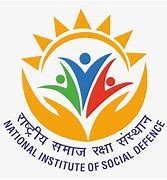The elderly people in India, or individuals aged above 60, are increasing in population as a demographic group. This comes with its own set of challenges and issues. This article will contextualise the role of elderly people in society and then analyse some socio-legal issues relating to the same.
Traditionally, societies have had an attitude of reverence towards the elderly. Indian society views them as wise and as people who have attained spiritual merit. Young people and children are expected to seek the guidance of the elderly and their parents, as age confers status in a collectivistic society. Many tribal societies seek medical and spiritual help from the elderly, who are seen as mediators between the spiritual and the material world.
On the other hand, elderly people, due to their declining physical and mental health, are seen as feeble and dependent on children or younger relatives, with elderly women, in particular, being projected as dependent on their male children. The Western preoccupation with youth and beauty, reflected in the glorification of thin, white and deodorized bodies, which are free of wrinkles and excess fat, further alienates the elderly. Indian society paradoxically expects elderly people to renounce bodily adornment and their own desires, to the extent of avoiding spicy food which could trigger passion and excessive energy. These strictures are gendered, affecting women and widows more than elderly men.
In this backdrop, elderly people face a multitude of challenges. The proportion of elderly people as a demographic cohort is increasing, with individuals over 60 now forming 10% of the total population, which is expected to rise to 19% by 2050. One of the reasons for this is increasing life expectancy, due to better hygiene, nutrition and health infrastructure, coupled with rising incomes and social security. Life expectancy in India is now 68.11 years, which will rise to 73.3 years in 2050. Elderly people however still face health challenges and deteriorating mental health, which is not just a physical issue but also a sociological one.
Another reason for the increasing number of elderly people in India is a decrease in mortality rates and also in birth rates, as couples choose to marry at later ages and have fewer children. This will have far-reaching implications for the economy, as the working population, which purchases consumer goods, will decrease, followed by an urgent need for geriatric care services and products, like wheelchairs and hospitals.
Some challenges faced by the elderly include- a lack of physical infrastructure, companionship, mental health issues, lack of financial support and emergency response services.
Elderly people often face health problems like cardiovascular diseases and mobility issues, but society has an ableist vision. Infrastructure in malls, restaurants and other public facilities is designed keeping in mind the needs of young, healthy and able-bodied individuals. Elderly people are then ironically blamed for their lack of mobility although the problem is with the city’s infrastructure. Mental health and neurological issues like Dementia and Alzheimer, as well as more common problems like depression, which disproportionately affect elderly people, are sometimes stigmatised and rarely spoken about, especially among women, which leads to decreased awareness. There is also a lack of facilities like proper nursing homes to deal with these concerns.
Elderly people also face a lack of financial inclusion. On the one hand, they are assumed to be ‘less productive’ and expected to retire from work, but on the other, provisions like pensions and health insurance are inadequate, pushing them into financial insecurity. Emergency response services, like ambulances, are also fewer than the required numbers, especially at night.
Importantly, elderly people also require social and emotional support, from friends, their spouses and children. However, many grapples with the death of their friends and partner, which causes depression and loneliness. Children also neglect elderly parents in today’s society, due to an increasing emphasis on careerism and individualism, lack of mechanisms like paid leaves to care for elderly relatives and migration. These further pushes elderly people into depression, anxiety and other mental health problems.
Crimes against elderly people are another cause of concern, which include physical violence, often perpetrated by children, burglaries and financial exploitation, often at the hands of family members. Elderly women and disabled elderly people are also more susceptible to physical violence by male and able-bodied family members.
Keeping this in mind, there are laws in India to safeguard the rights of elderly people. The Maintenance and Welfare of Parents and Senior Citizens (Amendment) Act, 2019, which includes within its purview step-children and adoptive children of all genders, enjoins younger people to care for their elderly and infirm parents and relatives, by providing a maintenance amount of at least Rs. 10,000 per month. It further makes this legally binding, with defaulting children being subject to both a fine and a term of imprisonment extending up to 3 months, and has instituted Maintenance Tribunals where elderly parents can seek redressal of their grievances.
There are also provisions such as the Senior Citizens Health Insurance Scheme, which provides enhanced coverage of Rs. 30,000 per senior citizen in a family, which aims to make elderly people financially secure.
However, there are still problems within this legal framework. For example, the definition of ‘relative’ in the Senior Citizens Welfare Act is ambiguous. To conclude, it requires more than just laws to safeguard the rights and well-being of the elderly, and there also needs to be a focus on holistic wellness, including mental, social and emotional well-being, for elderly people, rather than an approach that merely protects their basic existence and physical health.


Elderly Man in a Tribal Society
